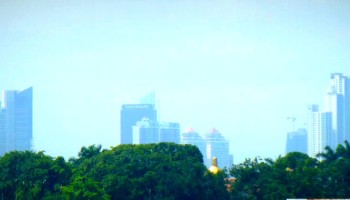According to AFP, police stopped two trucks carrying the children in the port town of Buba. Authorities said that the children, some as young as four, were being smuggled north where they were to be forced to work as beggars.
"These children were heading for Gambia, where there are Koranic schools all over the place, and they are often sent to beg in the streets," said Maria Inacia Gomes of the state-run Institute of Mother and Child.
The children, who were mostly sick and weak, were taken into the care of the United Nations.
Police arrested three men who allegedly attempted to traffic the children, but many more individuals including village chefs and religious leaders are suspected of involvement in the trafficking ring.
AFP says that "In Muslim-majority Gambia, where religious leaders have enormous social and political power, children have long been entrusted to teachers known as marabouts who educate them in residential Koranic schools, called daaras," but many daaras are fronts for forcing children to beg for money.
The US State Department says that children are often sent from Guinea-Bissau to Senegal, Mali, and Guinea as well, where teachers "routinely beat and subject the children, called talibé, to force them to beg, and subject them to other harsh treatment, sometimes separating them permanently from their families."
Human Rights Watch described the conditions of smuggled children as "akin to slavery," condemning the lack of law enforcement efforts to stem the practice.
Guinea-Bissau's chief of police Francisco N'dur Djata was adamant that law enforcement would take steps to fight child trafficking. "All those who are involved in this practice will be brought to justice," he declared.





